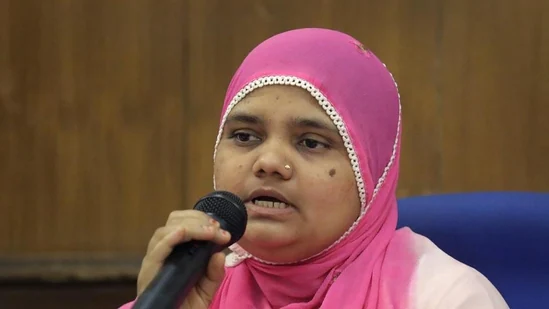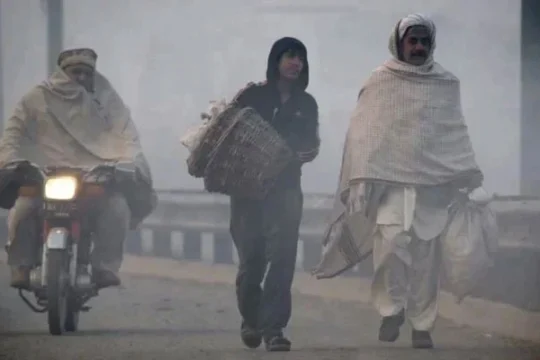
The Gujarat government granted their request under its remission policy, allowing eleven men who had been given life sentences in the Bilkis Bano gangrape case to be released from a Godhra jail on Monday, according to The Indian Express.
According to Gujarat Additional Chief Secretary (Home) Raj Kumar, the government took into account the applicants’ request for remission because they had already served 14 years in prison as well as other considerations including “age, nature of the crime, behaviour in prison.”
During the riots in Gujarat on March 3, 2002, Bilkis Bano was gang-raped. At the time, she was 19 and expecting. Her three-year-old daughter was one of the fourteen family members who were killed by rioters close to Ahmedabad. The girl was taken from her mother’s arms by one of the males.
In the 2002 riots, at than 1,000 people died, primarily Muslims. One of the most horrifying instances of the widespread brutality was Bano’s case.
Visuals shared on social media on Tuesday showed the convicts being greeted with sweets by their relatives after they were released. Familie members also touched their feet to bless them.
11 convicts sentenced to life imprisonment on charges of gangrape and murder of 7 members of #BilkisBano's family walked out of a Godhra sub-jail today. The Gujarat government allowed their release under its remission policy. #2002GujaratRiots @TheQuint pic.twitter.com/u1dawz5zzm
— Himanshi Dahiya (@himansshhi) August 16, 2022
In 2008, the defendants were found guilty and given life sentences by a special Central Bureau of Investigation court.
According to the law, a life sentence requires serving at least 14 years in jail before a condemned may ask for remission, Kumar said on Monday. According to Kumar, the government decides whether to grant a premature release based on a person’s eligibility as well as the advice of the district legal authorities and the prison advisory committee.
Radheshyam Shah, one of the prisoners, had applied to the Supreme Court for pardon after serving 14 years in prison, according to PTI. Sujal Mayatra, the Panchmahal District Collector, said the committee was led by the Supreme Court, which had urged the Gujarat government to make a decision on the application in May.
The 11 offenders in the case would all be pardoned, according to a committee that was established a few months ago, he added. “The state government received the recommendation, and yesterday we obtained the orders for their release,”
Who is Bilkis Bano?
On February 28, 2002, unrest broke out in the state following the Sabarmati Express tragedy at Godhra station the day before, which claimed the lives of numerous pilgrims and kar sewaks coming from Ayodhya. Bilkis escaped her village, Radhikpur, in the Dahod district.
Saleha, Bilkis’ 3-and-a-half-year-old daughter, and 15 other family members were also travelling with her. They left out of fear that the looting and burning that had occurred in their hamlet on the occasion of Bakr-Id a few days earlier might happen again.
The family arrived at Chapparwad village on March 3, 2002. The chargesheet claims that they were attacked by 20 to 30 individuals who were carrying sickles, swords, and sticks. The 11 accused men were one of the assailants.
Bilkis, her mother, and three additional women were viciously attacked and raped. Eight of the 17 Muslims from Radhikpur hamlet were discovered dead, while six were still missing. The attack was only survived by Bilkis, a male, and a three-year-old.
After the attack, Bilkis remained unconscious for at least three hours. She encountered a Home Guard who escorted her to the Limkheda police station when she came to after losing consciousness and borrowed some clothing from an Adivasi woman. The CBI claims that Head Constable Somabhai Gori “suppressed crucial details and drafted a distorted and abbreviated version” of her complaint after she filed one with him.





